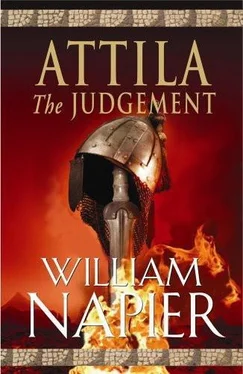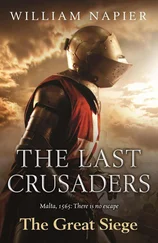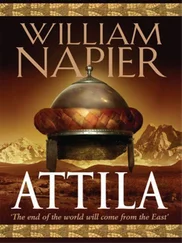William Napier - The Judgement
Здесь есть возможность читать онлайн «William Napier - The Judgement» весь текст электронной книги совершенно бесплатно (целиком полную версию без сокращений). В некоторых случаях можно слушать аудио, скачать через торрент в формате fb2 и присутствует краткое содержание. Жанр: Исторические приключения, на английском языке. Описание произведения, (предисловие) а так же отзывы посетителей доступны на портале библиотеки ЛибКат.
- Название:The Judgement
- Автор:
- Жанр:
- Год:неизвестен
- ISBN:нет данных
- Рейтинг книги:5 / 5. Голосов: 1
-
Избранное:Добавить в избранное
- Отзывы:
-
Ваша оценка:
- 100
- 1
- 2
- 3
- 4
- 5
The Judgement: краткое содержание, описание и аннотация
Предлагаем к чтению аннотацию, описание, краткое содержание или предисловие (зависит от того, что написал сам автор книги «The Judgement»). Если вы не нашли необходимую информацию о книге — напишите в комментариях, мы постараемся отыскать её.
The Judgement — читать онлайн бесплатно полную книгу (весь текст) целиком
Ниже представлен текст книги, разбитый по страницам. Система сохранения места последней прочитанной страницы, позволяет с удобством читать онлайн бесплатно книгу «The Judgement», без необходимости каждый раз заново искать на чём Вы остановились. Поставьте закладку, и сможете в любой момент перейти на страницу, на которой закончили чтение.
Интервал:
Закладка:
‘ Four will fight for the end of the world, One with an Empire, One with a Sword; Two will be saved and one will be heard, One with a Son and One with a Word.’ Aetius, Attila, Orestes and Cadoc, four boys who had played together on the Scythian plain, long ago. It was as the ancient rhyme had said.
But the reign of Romulus Augustulus was no more permanent than his predecessors’. Only two months later, Orestes’ own standard-bearer, Odoacer, an Ostrogoth, rose up in his turn and murdered Orestes. Romulus Augustulus was officially deposed on 4 September 476. It was precisely twelve centuries and six lustra since the first Romulus founded the city.
The Muse of Irony was not done yet.
Odoacer had previously visited Severinus, the most celebrated saint in Noricum. The huge Gothic warlord, clad in a black bearskin, had to bow low to enter the saint’s cell.
The saint said, ‘I give you two pieces of advice. First, go to Rome and you will become King of Italy. And second, mind your head on the way out.’
I write this in the Monastery of St Severinus, where the saint lies buried.
Odoacer slew the last emperor’s aged father, Orestes, who died as he had lived, speaking never a word in protest or explanation; but Odoacer could not bring himself to kill the boy. He was so small, aged all of six or seven, with blond curls, blue eyes, and looking quite absurdly like a cherub.
‘What would you like, boy?’
The boy stared up at the towering warrior and then whispered, ‘I’d like to grow vegetables in a garden.’
Odoacer despatched him to a monastery near Neapolis, to be cared for by the lay brothers. For himself, meanwhile, he disdained the imperial purple and diadem. He bluntly pronounced the Empire of Rome at an end, severed all ties and allegiances with Constantinople, set his borders at the boundaries of Gaul, Rhaetia and Noricum, and declared himself King Odoacer of Italy.
EPILOGUE
And I, the meanest of them all,
Am left to weep, and sing their fall…
Thus I, Priscus of Panium, in my ninetieth year, with crabbed and arthritic hand lay down my pen, in my simple cell in the Monastery of St Severinus.
I have a small gold coin on my desk before me. It is the only gold I own. It is beaded round the rim, crudely stamped with a stylised eagle, wings outspread, and it was given to me by the man they once called the Scourge of God. He now lies buried and silent along with the rest of the dead. When I go under the earth in my turn, perhaps the monks will find it and wonder at it, and keep it safe in the sacristy as a treasure. Or perhaps they will melt it down for cloison-work or foil for an illuminated Bible. Perhaps this gold from the hand of a pagan king will become leaf in a page of the Gospels. Ironies are many and nothing remains unchanged, not even gold.
At evening I can close my eyes peacefully in this Italian monastery amid the delicate tracery of stone carvings, silent but for the soft slap of sandals and the whisper of brown woollen habits over worn flagstones. Here the seven offices of the day are kept with a serene regularity for which I am thankful in a world given over to darkness and chaos. In a kingdom much tattered and torn, much threatened by the darkness beyond, but under the rule of a Christian King, Odoacer, I can give thanks with the rest of them for the triumph of Christendom.
Neither Attila’s insatiable appetite for ruin, nor Rome’s own great, monolithic sternness, but a gentler way than either survived those evil days. Here where the quiet, sandalled brothers tend their vines and their olive trees, and bend to cut the wheat with their wooden-handled sickles, and the goatbells tinkle from the surrounding hillsides. Here indeed is another way, which I for one think might be true civilisation…
But who is to say that those who thought differently, and fought for a different way, were not heroes, too? Mine is only one version. God when he walked on earth provoked many versions.
And so in memory of these things, and of that man whom I think the noblest as well as the last of the Romans – at one time my recalcitrant pupil – I leave these scraps of history to posterity. I know that posterity seems to me now, in this year of Our Lord 488, a dark and uncaring place, where the scrolls and books of the histories of past ages will be regarded as so much tinder for kindling a fire. The light of learning is going out across Europe.
Yet, although it seems to me likely that posterity will not care what I write, and that the name of Aetius, the noblest Roman, will be lost in the scattered leaves of the coming years, which name should be as widely known as Alexander, or Hannibal, or Caesar – yet it is for him that I have written.
There is a shy and rather simple lad of eighteen or so who lives with us here in the monastery. A lay brother with a shock of golden curls called Romulus, who loves nothing better than to help the monks in the vegetable garden, and to feed the chickens and the goats. He has a little herbarium all his own, filled with coriander and parsley and chives. He loves to grow beans and lentils, radishes, lettuces, and is very fond of the humble, heavy-cropping turnip. Once, he sat on the imperial throne of Rome, and wore the purple – but that was long ago, and in another world.
Never again will an emperor sit in purple upon the throne, nor stand beneath his yellow parasol on the steps of the Capitoline to greet another Roman army returning south in triumph amid the sound of brazen trumpets and thumping drums, down the Flaminian Way, past the Mausoleum of Augustus, the Column of Marcus Aurelius, winding up the Capitoline Hill to the Temple of Jupiter. Never again will the sunlight dance upon the bronze helmets of the cavalry as their horses champ upon the Field of Mars, nor senators gossip and plot in the vast Baths of Caracalla, lounging over the chessboard or strolling among the shops and gardens, libraries and sculpture gardens of that thirty-three acre Palace of Water. What use have barbarians for libraries and baths?
Nor will fathers take their sons up the pine-clad Palatine, past Domitian’s Domus Augusta, to see the cave where the monster Cacus once dwelt, nor the fig tree beneath which Romulus and Remus were suckled. Never again will a quarter of a million Romans roar in the Circus Maximus as the chariots race and swerve round the spina, nor in the Colosseum at the feats of the gladiators and wild beasts. Rome’s far-famed Insula of Felicula, sixteen storeys high, is vanished into rubble, and how long will it be before another such wonder is built, tier on tier?
Europe is a land of log-cabins and mud huts now, of grass-grown roads, crumbling aqueducts, passing war-bands playing crude games with handfuls of coloured mosaic in the ruins of fallen villas. Whatever is done can always be undone. Already the Forum itself, where Cicero and Caesar once spoke, is the abode of wildcats. The Rostra is ruined which was once decorated with the beaks of captured ships; and, yes, with the severed head and hands of Cicero too. Rome was never perfect, but we loved her.
All these things will soon be forgotten in this new world. Never again will the great grain ships ply their way through the salt furrows from Libya and Egypt, never again will the harbour at Ostia resound with the cries of merchants and traders from halfway round the world, bringing copper and tin and Silurian gold from Britain, glass and leather from the Levant, gems and spices from far Ceylon. Never again these things, for they are all done now. Yet as we can begin to discern, most strangely, Rome was a world both lost and won. Her soul was not destroyed, but miraculously lives on, in other bodies, other forms. She was the mother who died in childbirth – a long, agonising century of labour, her off spring the stern but gentle faith of Europe’s new, barbarian kingdoms. Any other triumph would have been much worse; and it was for this that so many fought and died to defeat the pagan darkness of the Hun.
Читать дальшеИнтервал:
Закладка:
Похожие книги на «The Judgement»
Представляем Вашему вниманию похожие книги на «The Judgement» списком для выбора. Мы отобрали схожую по названию и смыслу литературу в надежде предоставить читателям больше вариантов отыскать новые, интересные, ещё непрочитанные произведения.
Обсуждение, отзывы о книге «The Judgement» и просто собственные мнения читателей. Оставьте ваши комментарии, напишите, что Вы думаете о произведении, его смысле или главных героях. Укажите что конкретно понравилось, а что нет, и почему Вы так считаете.












